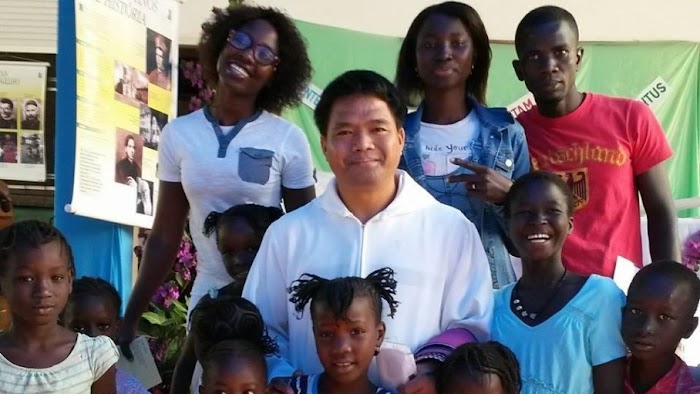The desire to pass on to others the faith in Christ that he received through the sacrifices of many missionaries is what motivated Father John Phe Thu, to cross a distance of 12,000 km to proclaim the Gospel in Europe. Africa, specifically in Guinea Bissau, my missionary land since 2011.
Missionaries of the Pontifical Mission Societies Abroad, or PIME for short, have been present in Myanmar for 150 years. As foreign missionaries grew older and fewer, a sign of hope emerged: Myanmar's young people, following the example of missionaries they've known since childhood, chose to give devoted his life to the mission of the Gentiles. Among the young Burmese missionaries of the Pime Society was Father John Phe Thu.
From the example of missionaries
Father John Phe Thu was born in 1976 at Mye Ni Kone, in Loikaw city, Kayah state, Myanmar. Along with the archdioceses of Taunggyi, Toungoo, Kengtung, Lashio and Pekhon, it is one of six dioceses founded by PIME missionaries during their 150-year presence in Myanmar. The PIME Mission has been present during some of the most important periods in Myanmar's history. Although the memory of the missionaries is still alive among Catholics, Father John never thought he would share their priestly experience. Father John Phu The shared about his priestly journey:
"My vocation started when I was a teenager, since I still didn't know where to find information or what to do to become a priest. Initially, I wanted to be a priest. diocese because I don't see any difference between diocesan or religious priests At the age of 21 I started my religious formation program in Taunggy, and there I met a number of PIME missionaries; especially Father Adriano Pelosin. He showed us the meaning of missionary life and got us involved in charity programs and initiatives in neighboring villages."
Wishing to be able to pass on my faith to others
As a result, Father John Phe Thu said, he discovered "another model of consecrated life". He continued: "From the history of the Church I understood: the faith that I received was the result of the sacrifices of many missionaries. And from there, I had a desire to be able to pass on the faith of the Church. I gave myself to others, as missionaries did. Back home, I met my Bishop: there were three of us who wanted to join PIME.” The bishop told us: "A difficult life awaits you, but if this is your will, then go." So we joined the seminary: two years in Rome and four years in Monza".
'Listen, see and learn'
In 2010 Fr. John Phe Thu was ordained a priest and in 2011 he went on a mission to Guinea Bissau. “I am ready to go anywhere,” Father declared. And he shared how he felt when he arrived in that mission: “The joy of going is greater than any fear. Faced with a different culture, I had to be patient and learn to understand the local people, without condemning them. I repeated to myself what my fellow Missionaries taught me: 'Listen, see, and learn'.”
Cultivate trust and accompany faith
For the first three years, Father John was a missionary in Bambadinca, in the diocese of Bafatà, and at the same time served in the parish of Our Lady of Fatima in Bissau. On October 1, 2017, Father John was appointed pastor in Catió, in the southern part of Guinea Bissau. Father John explains: “In Guinea Bissau, the faithful were used to seeing Western missionaries. Therefore, at first it was difficult for them to accept a missionary from Asia. Even an African priest is a strange thing. Often Catholic families oppose a young priest because in their opinion, only white people can be priests.”
“In Catiò, where the Pime missionaries had come 40 years ago, missionary work progressed very slowly. Catholics are only a minority, about 15% of the population. The majority of the local population is animist, and there are also a large number of Muslims. Christians are seen as the role model of society. The work of the missionaries fostered the people's trust in the Church."
“Many people are religious, but it is our mission as priests to accompany them on their journey of faith. Last year, we baptized 10 young people. Becoming a priest requires a journey of at least 7 years. New converts often have to deal with pressure from family and the burden of local traditions. There are cultural aspects that often cannot be left out. From our side, we try to appreciate the positives in these traditions. It is true that there are things that Christianity cannot accept. We spoke to each new convert to let the Gospel enter each culture, purifying them and elevating them.”


